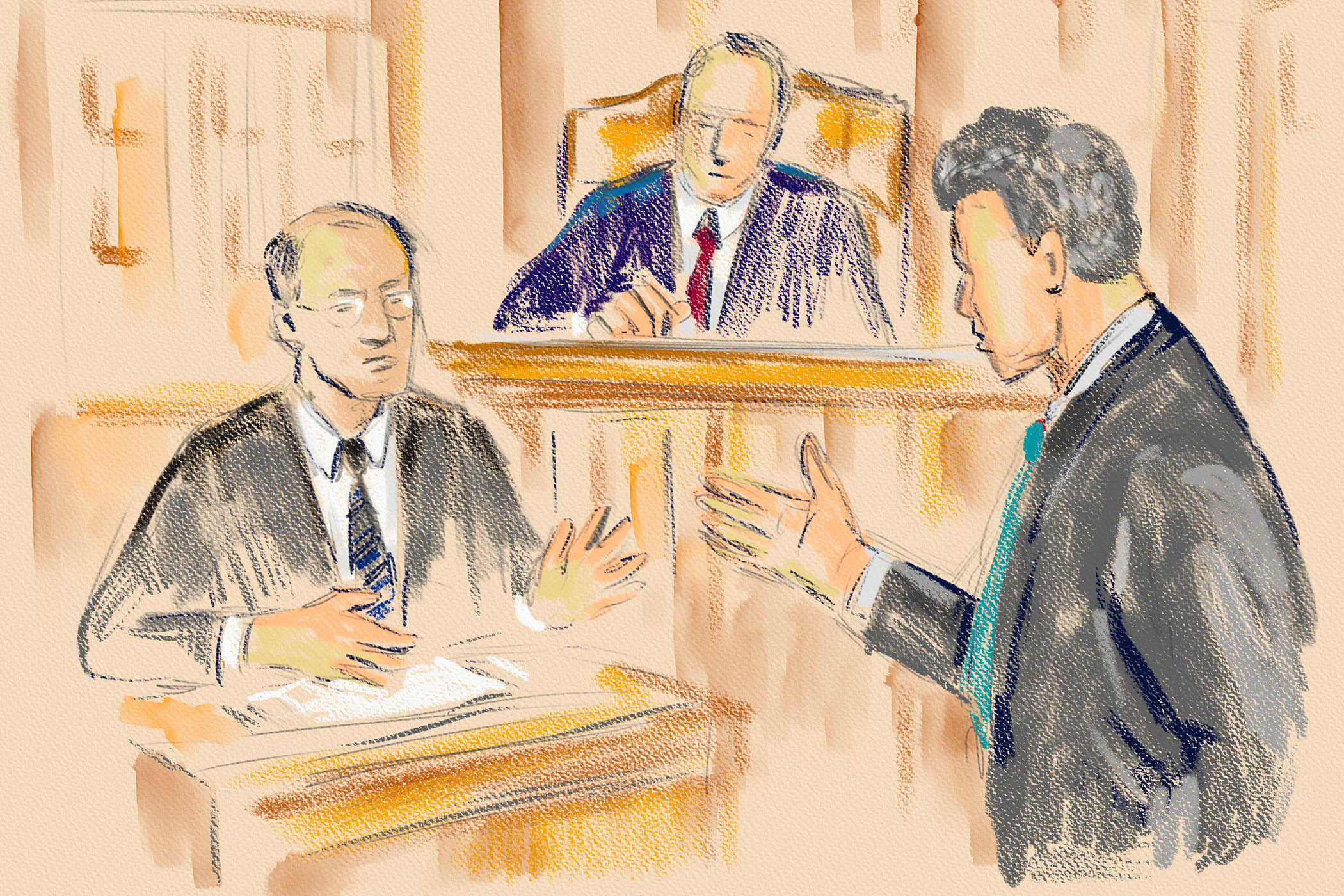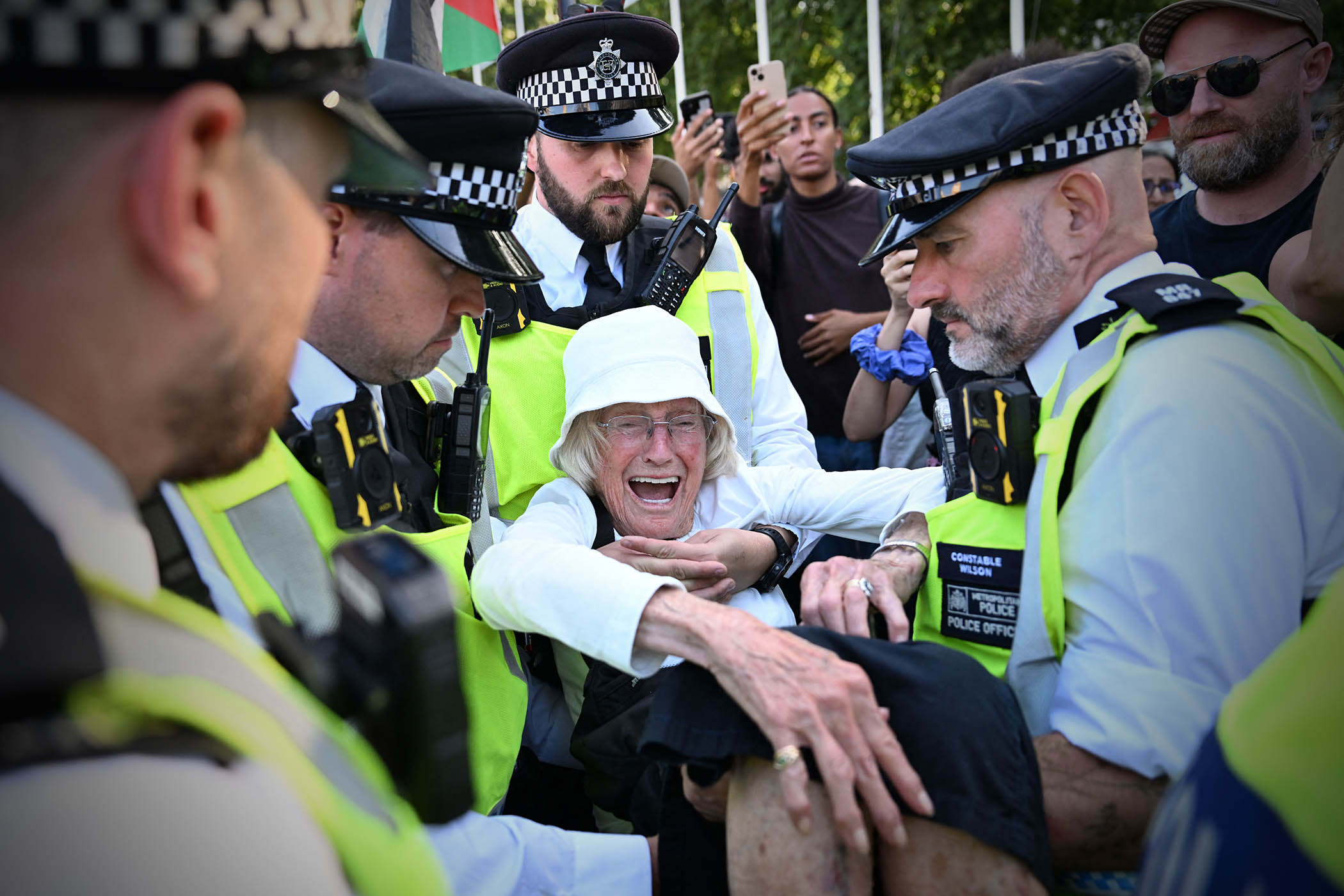Somehow, Lucy Connolly has become a hero. Released last week after serving 10 months, 12 including time on remand, of a 31-month sentence, she has become lionised as a free-speech champion, a figurehead for immigration reform and the self-proclaimed “political prisoner” of Sir Keir Starmer.
Connolly’s imprisonment was misguided. The acclamation now being heaped upon her is nauseating.
The story begins a year ago, after the grotesque murders by Axel Rudakubana of three young girls at a dance class in Southport.
In the riots that followed, some people targeted mosques, others attempted to set fire to hotels hosting asylum seekers, all believing various false rumours that the killer (whose details had at that stage not been made public) was a Muslim, an asylum seeker, someone who had crossed the Channel in a small boat. Connolly published (and later deleted) a bigoted, inflammatory tweet: “Mass deportation now, set fire to all the fucking hotels full of the bastards for all I care”.
She was charged with inciting racial hatred, pleaded guilty and was given a custodial sentence.
I have argued before that the legal threshold for incitement in Britain has become too low – I would prefer the American “Brandenburg test” that speech must be intended to incite “imminent lawless action” and likely to produce such action – and that, as vile as Connolly’s tweet was, she should not have been imprisoned.
There is, though, nothing becoming in the praise now being showered upon her. The final line in the Daily Telegraph columnist Allison Pearson’s sycophantic interview with Connolly on her release – “Cry God for Harry, England, and Lucy Connolly” – sums up the absurdity of the whole enterprise.
Connolly has become the poster girl for “two-tier justice” – “a symbol of Keir Starmer’s authoritarian, broken, two-tier Britain”, in the Reform leader, Nigel Farage’s, words. Many have compared Connolly’s imprisonment with the case of Ricky Jones, who had the previous week been acquitted of “encouraging violent disorder” after telling a crowd in east London, also during last summer’s riots, that many of the anti-immigration protesters were “disgusting Nazi fascists” and “we need to cut their throats and get rid of them”.
The shadow home secretary, Chris Philp, a critic of Connolly’s conviction, thought it “astonishing” that Jones had been “let off scot-free”. Pearson bizarrely labelled it “an insult to white mothers by a racialised and politicised justice system” and claimed: “We are all Lucy Connolly now.”
There is nothing new in the prosecution of people for things they have said
There is nothing new in the prosecution of people for things they have said
There is nothing new in two-tier justice. Certain groups seen as threatening the social order have always faced harsher policing. What is different is that many on the right who for decades have been comfortable with unequal justice, have suddenly become concerned by it. Why? Because the targets are no longer just black people, or the Irish, or trade union militants, or Muslims, but also working-class people with views that challenge the liberal consensus, especially on immigration.
Newsletters
Choose the newsletters you want to receive
View more
For information about how The Observer protects your data, read our Privacy Policy
And, while prosecutions for offensive or hateful speech, especially on social media, have greatly increased in recent years, there is nothing new either in the prosecution or imprisonment of people for things they have said. Muslim protesters against Danish cartoons of the Prophet Muhammad were jailed for up to six years for chanting “Bomb, bomb the UK” and “Annihilate those who insult Islam”. The drill rappers Skengo and AM were given suspended sentences for performing a particular song at a gig. Protesters against the proscription of Palestine Action as a terrorist group have been arrested en masse. Not only have such cases rarely gained attention from those now criticising two-tier policing, but many have welcomed police action.
Nor is the difference between the conviction of Connolly and the acquittal of Jones a straightforward illustration of two-tier justice. Connolly pleaded guilty and was sentenced by a judge. Jones pleaded not guilty and was acquitted by a jury. What is displayed here is less two-tier justice than the willingness of juries to take a more commonsense view than many magistrates and judges. Had Connolly chosen a jury trial, she, too, might have been freed.
In any case, what concerns many is not just that Connolly was convicted but that Jones was not. Philp’s claim that Jones got off “scot-free” despite “clearly calling for violence” implies that he should have been convicted. Similarly, the denunciation of the verdict as “perverse” and “unacceptable” by the shadow housing minister, James Cleverly, suggests both a less than robust attitude to free speech and a hesitancy about jury trials if they return the “wrong” verdict. What many seem to desire is not “one-tier” justice but a justice system that produces only the results of which they approve. (Connolly, to be fair, does not think Jones should have been jailed.)
The mantle of martyr and hero in which many are wrapping Connolly reveals a highly distorted moral compass. To suggest as Pearson does that someone who couldn’t care less whether rioters “set fire to all the fucking hotels full of the bastards” should be a “figurehead” for “concerned mums and grandmothers” protesting “outside migrant hotels against an influx of undocumented males into our country which put their children and grandchildren at risk” might seem to most reasonable people to damn the cause rather than enhance it.
It is morally incumbent on those who defend free speech also to take a stand against bigotry and hatred wherever they reveal themselves. Too many fail that test. Free speech is too important an issue to leave to be hijacked by those who imagine that Connolly is any kind of moral exemplar.
Photograph by Zuma/Alamy



